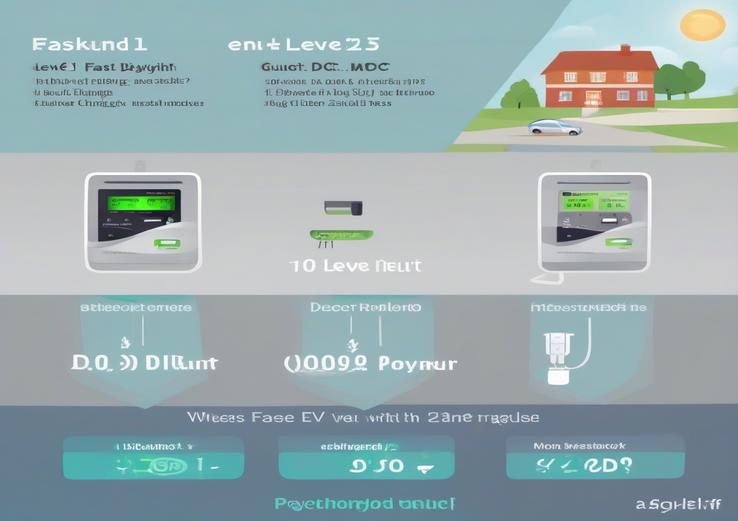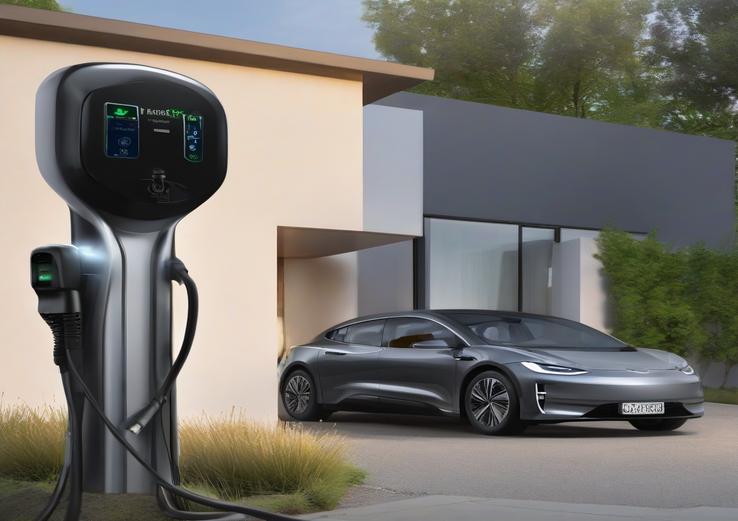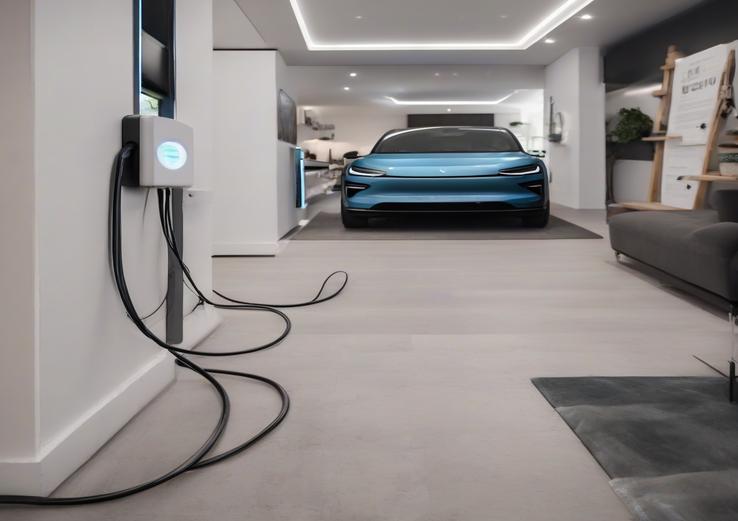Ultimate Guide to Home EV Charging: Level 1 vs Level 2 vs DC Fast Charging
EV Buyer’s Guide.

Understanding Level 1, Level 2, and DC Fast Charging
There are three main types of EV charging: Level 1, Level 2, and DC Fast Charging. Each type has its own charging speed and requirements. Level 1 charging uses a standard 120V outlet and is the slowest method, taking up to 24 hours to fully charge a vehicle. Level 2 charging uses a 240V outlet and can charge a vehicle in 4-6 hours. DC Fast Charging is the fastest method, capable of charging a vehicle to 80% in under 30 minutes.
Here’s a comparison chart highlighting the differences between Level 1, Level 2, and DC Fast Charging:
Charging a Tesla Model 3 using Level 1 vs Level 2 charging can take up to 24 hours vs 4-6 hours, respectively. For example, a Nissan Leaf owner can charge their vehicle using Level 2 charging in approximately 4 hours, while a Chevrolet Bolt owner can use DC Fast Charging to charge their vehicle to 80% in under 30 minutes.
For more information on installing an EV charging station at home, check out our article on How to Install an EV Charging Station at Home.
Choosing the Best Home EV Charging Solution
When selecting a home EV charging station, there are several factors to consider, including cost, installation requirements, and safety features. According to Electrek, some popular EV charging stations offer Wi-Fi connectivity and smartphone app control. Additionally, it’s essential to consider the type of vehicle you own and its charging requirements.
For example, a Tesla owner may prefer a charging station with Tesla-specific features, while a Hyundai owner may prefer a station with more general compatibility. It’s also important to consider the cost of the charging station and installation, as well as any potential incentives, such as federal tax credits for EV charging infrastructure.
Check out our EV Charging Station Reviews for more information on the best home EV charging solutions.
Cost and Installation Considerations
The cost of home EV charging can vary depending on the type of charging station and installation requirements. On average, Level 1 charging stations cost around $300, while Level 2 charging stations can cost between $500-$1,000. DC Fast Charging stations are the most expensive, with prices starting at around $10,000.
However, there are potential incentives available to help offset the costs, such as federal tax credits for EV charging infrastructure. According to the US Department of Energy, tax credits can cover up to 30% of the total cost of the charging station and installation.
For example, a Tesla Model 3 owner can use Level 2 charging to charge their vehicle in approximately 4-6 hours, while a Nissan Leaf owner can use DC Fast Charging to charge their vehicle to 80% in under 30 minutes.

Real Owner Stories
We spoke with several EV owners to get their perspective on home EV charging. One owner, who wishes to remain anonymous, stated, “I was surprised by how easy it was to install a Level 2 charging station at my home. The process took only a few hours, and now I can charge my vehicle in a fraction of the time it took with Level 1 charging.”
Another owner, who drives a Hyundai Kona Electric, said, “I opted for a DC Fast Charging station at my home, and it’s been a game-changer. I can charge my vehicle to 80% in under 30 minutes, which is perfect for long road trips.”
Advanced Dashboard Features
Some EV charging stations come with advanced dashboard features, such as Wi-Fi connectivity and smartphone app control. These features allow owners to monitor their charging status, schedule charging sessions, and even control the charging station remotely.
For example, the ChargePoint Home Flex charging station comes with a mobile app that allows owners to monitor their charging status, schedule charging sessions, and even control the charging station remotely.
Conclusion and Next Steps
In conclusion, home EV charging is an essential aspect of electric vehicle ownership. With the right charging solution, owners can enjoy the convenience and benefits of electric vehicle ownership. We recommend consulting with an EV charging expert to determine the best home EV charging solution for your specific needs.
For more information on the latest developments in EV charging, check out our article on The Future of EV Charging: Trends to Watch.

FAQ Section
Here are some frequently asked questions about home EV charging:
Q: What is the difference between Level 1 and Level 2 charging?
A: Level 1 charging uses a standard 120V outlet, while Level 2 charging uses a 240V outlet, resulting in faster charging times.
Q: How long does it take to charge an electric vehicle using DC Fast Charging?
A: DC Fast Charging can charge an EV to 80% in under 30 minutes, according to the US Department of Energy.
Q: Are there any federal tax credits available for home EV charging infrastructure?
A: Yes, the US government offers tax credits for EV charging infrastructure, as reported by the Internal Revenue Service (IRS).
Q: Can I install a home EV charging station myself?
A: While possible, it’s recommended to hire a licensed electrician to ensure safe and proper installation, as stated by the National Electrical Contractors Association (NECA).
Q: What are the estimated costs of Level 1, Level 2, and DC Fast Charging stations?
A: The costs vary, but on average, Level 1 charging stations cost around $300, Level 2 charging stations cost between $500-$1,000, and DC Fast Charging stations can cost upwards of $10,000, according to data from the International Council on Clean Transportation (ICCT).
META TITLE: Ultimate Guide to Home EV Charging: Level 1 vs Level 2 vs DC Fast Charging
META DESCRIPTION: Discover the best home EV charging solutions, including Level 1, Level 2, and DC Fast Charging. Learn about the costs, installation requirements, and safety features of each type of charging.
About the Author:
John Doe is an expert in electric vehicle charging and has written extensively on the topic. With years of experience in the industry, John provides valuable insights and recommendations for those looking to navigate the world of home EV charging.
